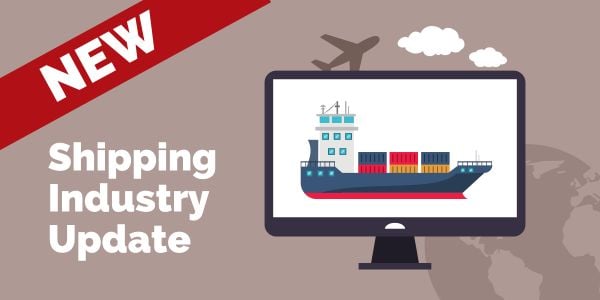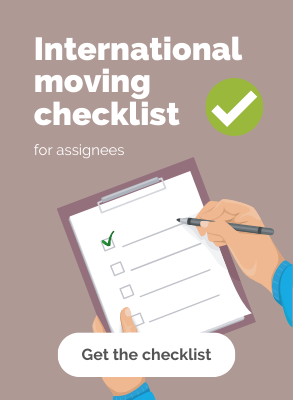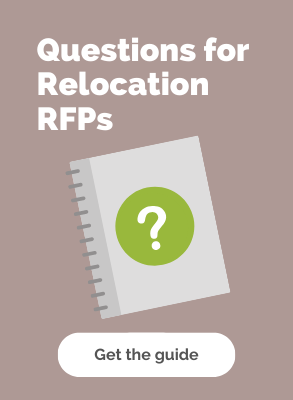
This monthly update, provided by the British Association of Removers gives a current overview of the global shipping market out of the UK. It provides HR and Global Mobility Managers with a useful and unbiased understanding of the potential challenges, cost implications and risks that may need to be planned for.
**Please note this information applies to all UK international removers and is not unique to Bournes.**
Key regional UPdates:
North America from Europe (USA, Canada, Mexico)
-
Ongoing space shortages: Delays in obtaining vessel space continue due to shipping lines reconfiguring services under new alliances. Expected improvements in Q2.
-
Route and service changes:
- Many lines now consolidate USA services via Southampton.
- Direct ports of discharge in the USA are changing as carriers roll out new services.
- Hapag-Lloyd has ended its direct US West Coast service.
- New USA services launched by OOCL, Hyundai, and CMA-CGM.
- Halifax, CA is only serviced by ACL.
-
Trans-Atlantic trade is oversubscribed: Demand exceeds available vessel capacity, causing increased rates, delays, and a higher risk of booking cancellations.
-
The main impact on customers remains the Increased notice required to secure vessel space as well as a greater likelihood of container rollovers and unexpected delays.
Eastbound Trades (shipments to Asia, Oceania, India, Middle East)
- The diversion around the Cape of Good Hope, prompted by regional conflict, continues to function effectively. There is currently no timeline for when normal routing will resume, so longer transit times should be anticipated as standard.
- Middle East services remain strained. Some shipping lines have ommitted Middle East port calls, creating severe backlogs and some overbooked sailings/cargo rollovers are causing delays.
- Some congestion is also being experienced in Asian transhipment ports with containers for Oceania being rolled multiple times, therefore it is sensible to expect delays and increased transit times.
- Increased freight costs for exports from Asia are now impacting other routes with capacity reallocation beginning to cause space issues on exports from Europe, especially to the Americas.
- We continue to recommend planning move dates as far in advance as possible to ensure schedules are met.
Southbound from Europe (South, East, West Africa)
- No new updates.
- Services provided to this region continue to be stable.
- Some inland freight routes have been removed due to congestion and infrastructure limitations.
- Reduction in main destination ports, particularly affecting Indian Ocean Islands.
Latin America from Europe
- No new updates.
- Services provided to this region continue to be reliable.
-
Container release can take longer than the free storage period offered by shipping lines, leading to potential extra storage charges.
ongoing challenges
Changes to Costs
- Increased freight rates for export shipments from Asia are now impacting other routes as capacity reallocation has a knock-on effect on exports from Europe.
- Exchange rate fluctuations and shipping line fuel (bunkering) cost reviews can impact the final sea container freight cost. In some recent bunkering examples some movers have seen increases up to US$350.
Quality of Container Equipment
The industry continues to experience a lower quality of container equipment used by shipping lines due to the higher demand for containers to service Asia through the Cape of Good Hope. If a container is provided that is deemed unsuitable for safe transportation of HHG a replacement container is usually provided, however this can result in delays, missed shipping schedules, and additional haulage costs, all of which are outside the mover's control.
Lithium-Ion Batteries
- Shipping lines are still yet to agree on consistent rules for guidance on the shipment of Li-ION batteries which have been widely reported to increase the risk of fire (examples include e-bikes/scooters, cordless power tools, laptops etc).
- The BAR Overseas group recommends that removable Li-ION batteries are NOT SHIPPED and are instead removed and replaced at destination. If they are included the shipment may need to be declared as Hazardous cargo which will require additional documentation processes and substantial freight surcharges, if permission is granted.
- Failure to declare batteries whether intentionally or in error is a serious offense under maritime law and could lead to substantial fines for the customer (approx US$30,000) and risk of confiscation/disposal of consignment.
ISC2 EU Requirement
-
EU regulations now require additional shipper details for vessels docking at EU ports. Customers may need to provide more personal information.
Russian Passport Holders
Shipping Line ONE LINE has confirmed that they will not ship the personal effects Russian passport holders. The BAR are communicating with other shipping lines for their positions, but Russian passport holders need to be cautious when planning to move and ensure that the shipping line used can clear their goods at destination. The accrued storage charges should there be a dispute could be significant.
KEY ACTIONS to MiNIMISE RISK
The combined impact of the above challenges on relocating employees can be summarised as follows:
- Longer lead times and increased notice may be required to secure vessel space.
- Increased likelihood of delays due to containers being rolled or rejected.
- Freight rate volatility still exists but is expected to settle in the coming months.
Recommended Actions for Global Mobility:
- Highlight any Russian Passport holders to your shipping provider to avoid complications with shipping lines.
- Plan in advance wherever possible, communicating moving dates early to allow sufficient time for booking vessels.
- Communicate closely with your shipping vendors to stay updated on changes in schedules, routes and capacity for your key lanes.
- Ensure transparency by making sure you or your mover are discussing potential delays with relocating employees to manage expectations.
- Consider updating your policy to address the challenges with Li-ION batteries to prevent complications and additional costs (or at least ensure your mover is communicating this clearly with employees). Discuss with your mover how to handle any exceptions, such as batteries which cannot be removed.
These actions can help minimise risk of additional costs or a poor service experience for your employees.
If you require any further detail or have questions please don't hesitate to contact our Corporate Relocation Team.








